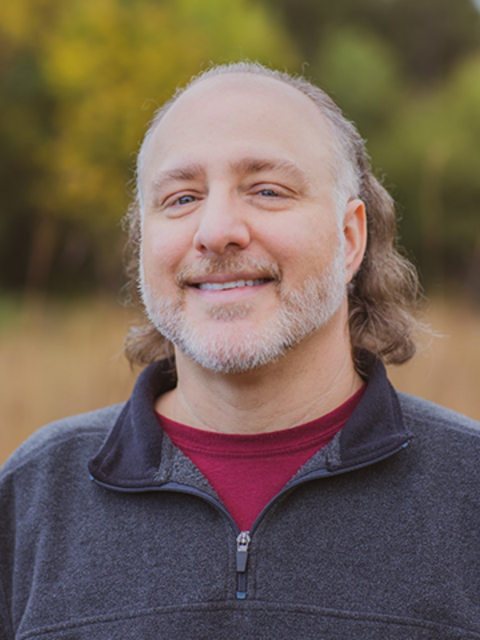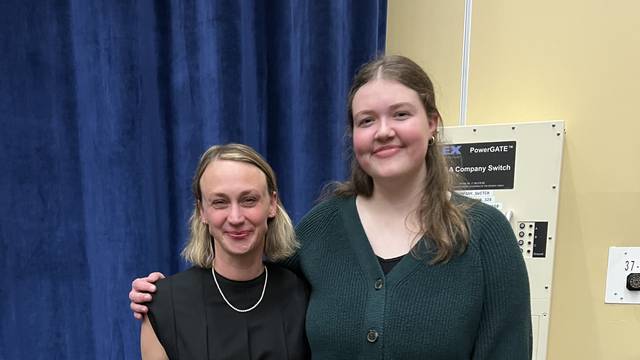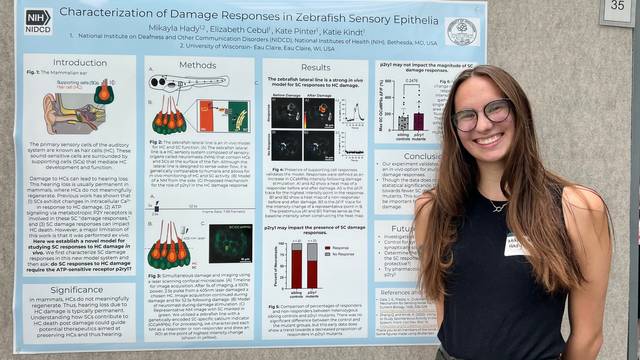The development of Dr. David Leland’s honors colloquium course, HNRS 118: Cognitive Electrophysiology, has been a long time coming. An associate professor in the psychology department, Dr. Leland has been at UWEC since 2010, and has taught a wide range of psychology courses, from the introductory level to upper-level seminars.
Along with psychology, Dr. Leland’s other main focus is in the world of neuroscience, and even among his colleagues in the field at UWEC, his position is unique due to the fact that he specifically focuses on human neuroscience, as opposed to working with animal models.
Dr. Leland’s course mainly focuses on studying how scalp-recorded electrical activity in the brain (also known as electroencephalography, or EEG) is used to examine how humans process information. Within this course, Dr. Leland also covers the fundamentals of neuroscience and cognitive psychology, as well as using the event-related potential (ERP) technique to extract and study EEG data.

Dr. Leland is part of a small group of undergrad faculty who are recipients of the National Science Foundation’s PURSUE (Preparing Undergraduates for Research in STEM-related fields Using Electrophysiology) grant. This kind of funding is significant because Dr. Leland fulfills quite a niche area of study that doesn’t usually have much representation at smaller or mid-size universities.
While preparing for the course, Dr. Leland experienced a healthy mix of intimidation and excitement. He says that part of his excitement stems from considering faculty members who have wanted to teach a course or content such as this, but who haven’t had any established example or model to work off of. Now, he explains, the course he and his PURSUE colleagues have developed can act as that model for future educators and researchers. Dr. Leland is also encouraged by the fact that, since UWEC’s semesters generally run later than other schools, he is able to take advantage of instructors at other schools being further ahead. This supportive network of faculty is able to help each other with tips and tricks for instruction, which helps alleviate some pressure for Dr. Leland.
One thing that Dr. Leland says he hadn’t anticipated about the experience of teaching this course was the way he had to take a slightly different approach, due to the fact that his honors course is aimed at students from any major. With honors students representing fields from actuarial science to English education, he has had to learn how to “read the room” so to speak, to tweak the course content to ensure it is as accessible as possible for all students. However, this diversity of majors and is also a source of excitement. Speaking to the idea that a course like this one should be welcoming to students of all academic backgrounds, Dr. Leland says: “I don’t think that people’s majors are a reliable indicator of how interested or successful they are going to be.”
Another difference Dr. Leland has found between teaching this honors course and his other courses is the approach he took based on class size. He explains that most of his other courses’ sections are much larger and filled to capacity, sometimes with up to 60 students in a section, which is quite a different experience than his honors course, which has a total of 23 students. This smaller class size makes for a more conducive atmosphere for hands-on exercises and activities that would just be too difficult to coordinate in a larger section, which are largely lecture-based by necessity.
When asked what he wants students to be able to take with them after the course ends, Dr. Leland emphasized his hope that they can take the skills and information they learn and transfer them to other disciplines by recognizing the interconnectedness between different fields like neuroscience, psychology, mathematics, education, and more.
But on a broader scale, Dr. Leland also recognizes that simple intellectual curiosity is something to be celebrated. While he knows that there are important practical applications of the knowledge that students have learned in his course, he also believes it is important to help students, in his words, “discover cool stuff.” Even outside of the STEM world, a course like this can help students develop their critical thinking, teamwork, and connection-making skills.



